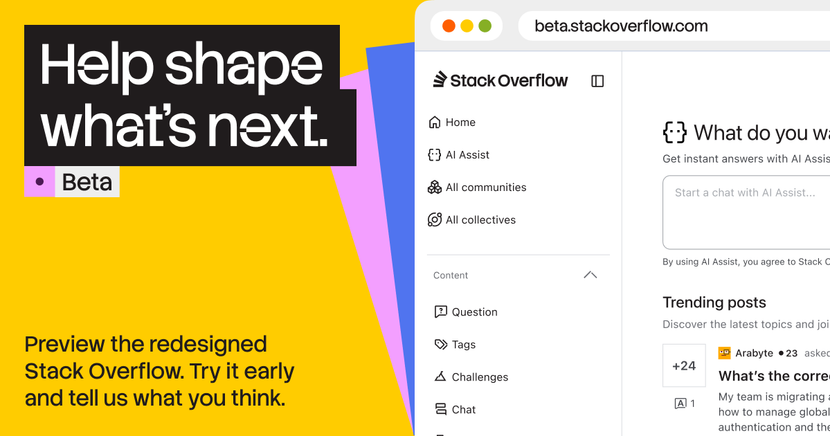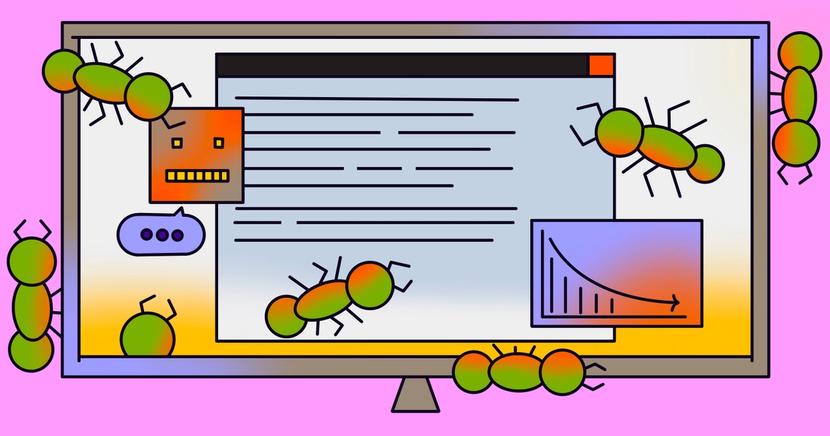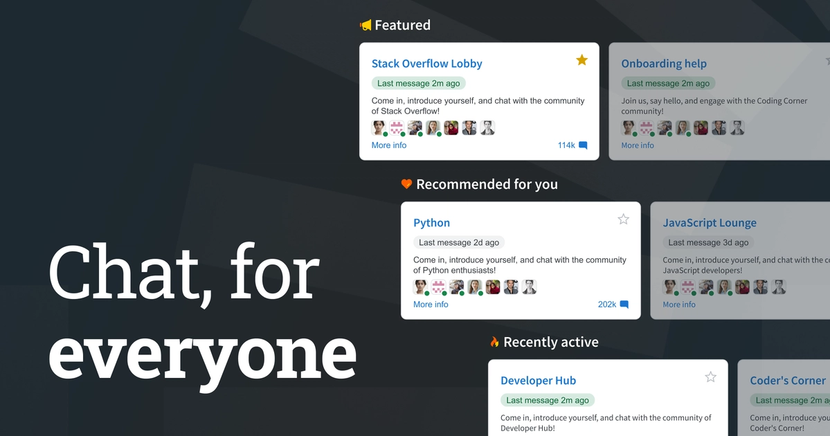Can commit messages include volatile information?
Even commit messages must heed the sands of time.
Come check out the new Stack Overflow beta experience, tell us what you think, and help shape what’s next

API and network traffic get all the press, but some folks are still trying to build a better upload scanner.

Developer trust is synonymous with a willingness to deploy AI-generated code to production systems with minimal human review, as well as assurance that AI tools aren’t introducing unacceptable risks and technical debt that will burden you down the line.

There are big hitters in the AI space that use this tech for humanitarian and environmental good—from start-ups fighting climate change to voice recognition experts diagnosing diseases. But you don't need to be backed by AWS or Microsoft to do good. In part two of this series, we dive into how anyone can use AI for good.

In a world where AI is replacing human workers, using up energy and water, and deepening disconnect, is AI for humanitarian good even possible? The answer is yes. In the first part of this two-part series, we're taking a look at just a few AI do-gooders and what they're doing to fight climate change, make healthcare more accessible, and help their communities.

Not only is there a future for software development, but we’re on the cusp of enormous demand for code developed by humans.

Quality software still needs high-quality code, AI agents or not.

We're running a survey to understand how people are using AI to learn and whether that's helping, hurting, and replacing tools.

What specific kind of bugs is AI more likely to generate? Do some categories of bugs show up more often? How severe are they? How is this impacting production environments?

We’re excited to announce our 17th annual Stack Gives Back campaign donations.

Security controls can be a bit of a cat and mouse game—you block one attack, new ones spring up.

Learn how to protect MCP servers from unauthorized access and how authentication of MCP clients to MCP servers works.

If a new post looks very similar to content that has been recently removed for being spam, it's likely spam too.

Here's the lowdown on all the tech from 2025 that you, dear Zoomer, should know about.

Registered users can now join public chat rooms from day one, making it easier to connect, learn, and participate in the community

In the age of AI, being able to make applications and create code has never been easier. But is it any good? Here's what vibe coding is like for someone without technical skills.

What the AI you choose chooses is not your choice.
How many breakers could you blow if you plugged all of them in at once?
There's an alternate timeline where we're all in the gophersphere instead of the World Wide Web.
....except for the cases you’d need to use other databases, too.
Maybe the UI was really the agentic friends we made along the way.
Ask yourself—is it more work to create a Wordle solver than to just solve the Wordle?
Your randomization is not so random after all.
The sequel of the beloved "If You Give a Mouse a Cookie" is called "If You Give a Mathematician an IDE.”
For when you want to feel like you're in high school again by pretending to be productive by doodling in your workbook.
Is this the start of the human vs. AI flamewars we were forewarned about?
This is is great for beginner sandwich builders, but doesn't cover the complexity of when a user wants the Dutch Crunch add-on.
They make take our vibes, but they will never take our creation!
Every week we’ll share a collection of great questions from our community, news and articles from our blog, and awesome links from around the web.
Read previous issues →